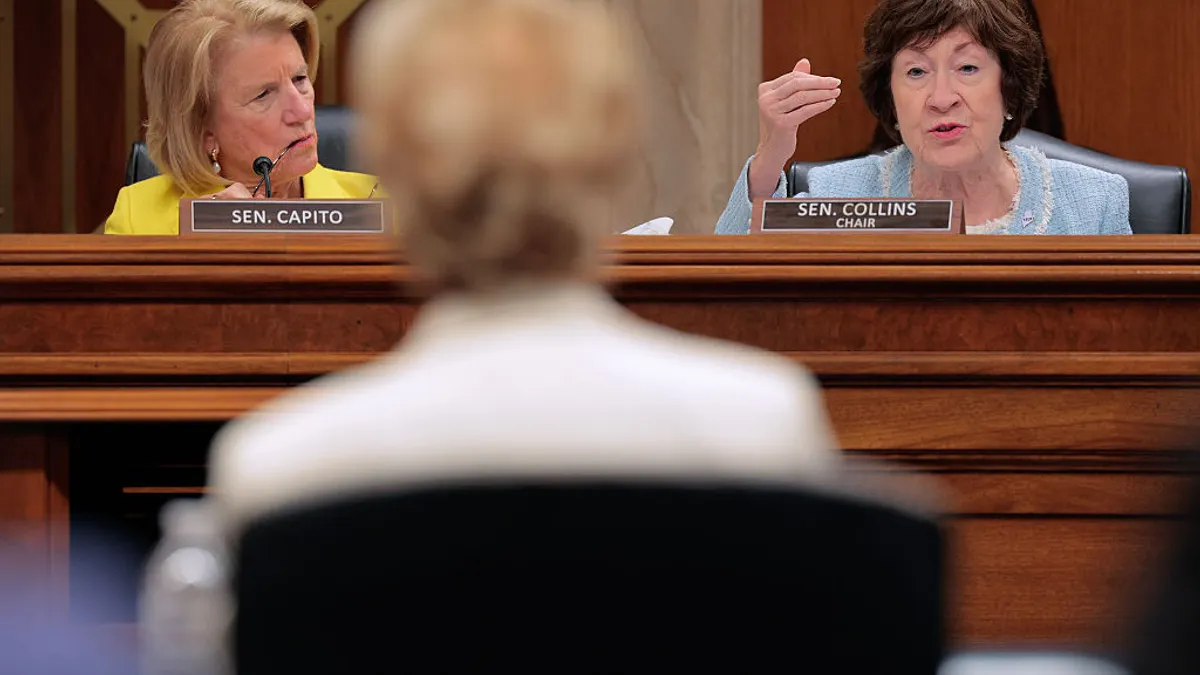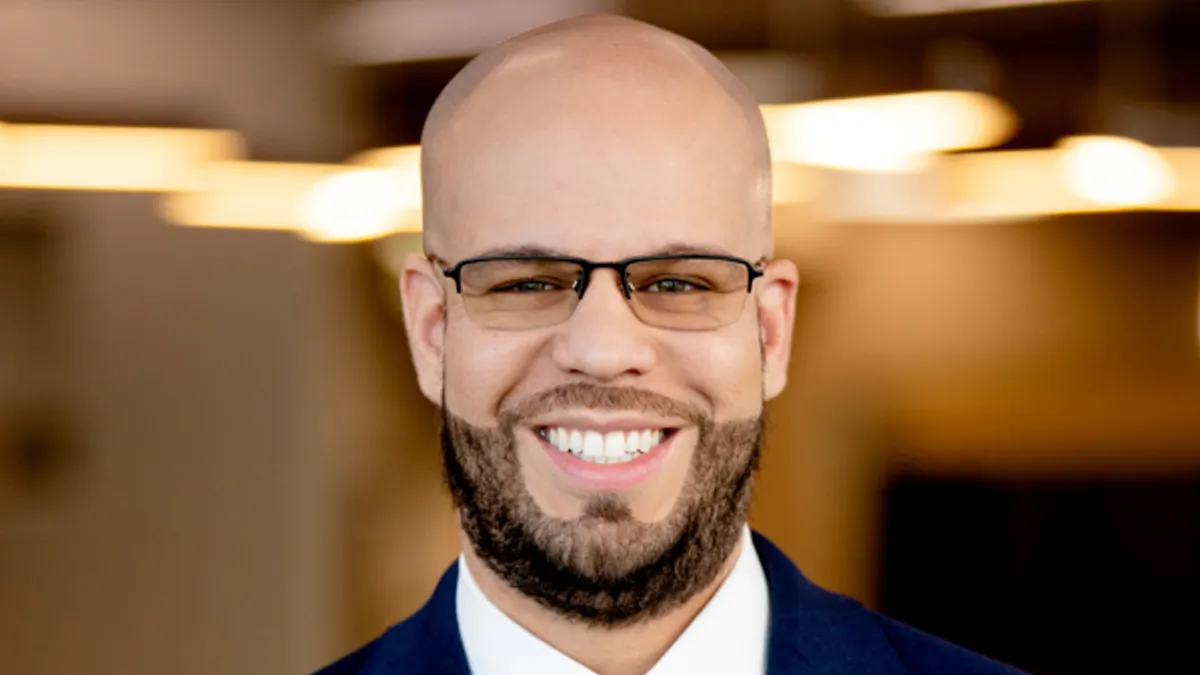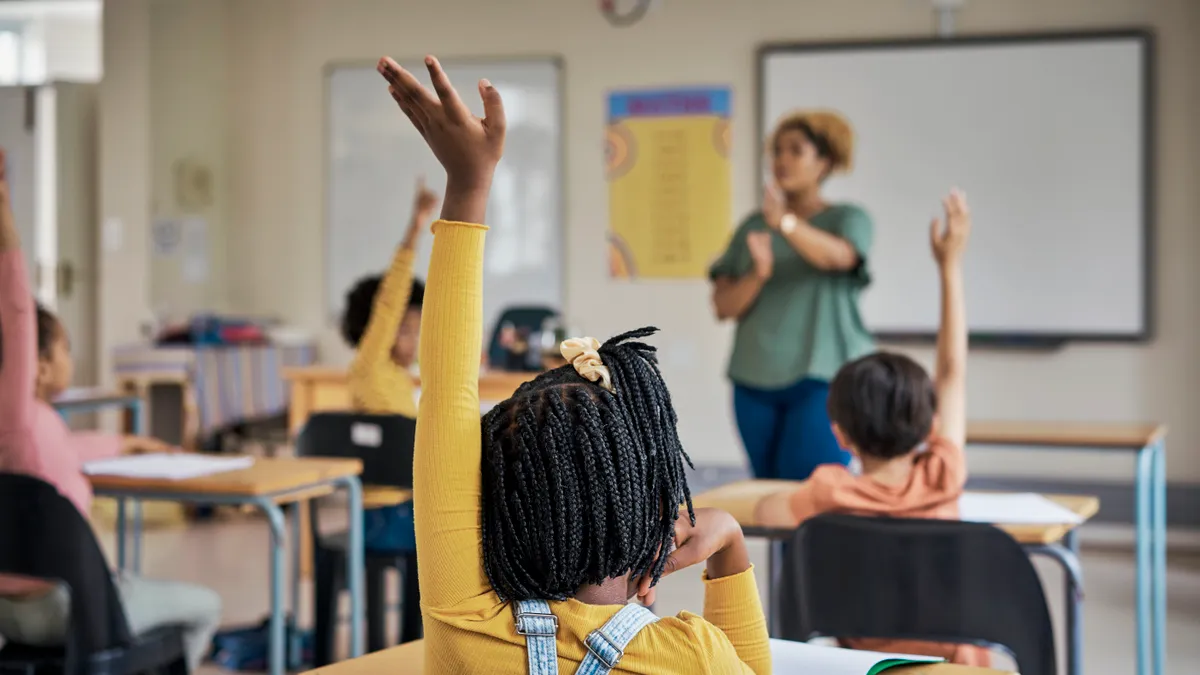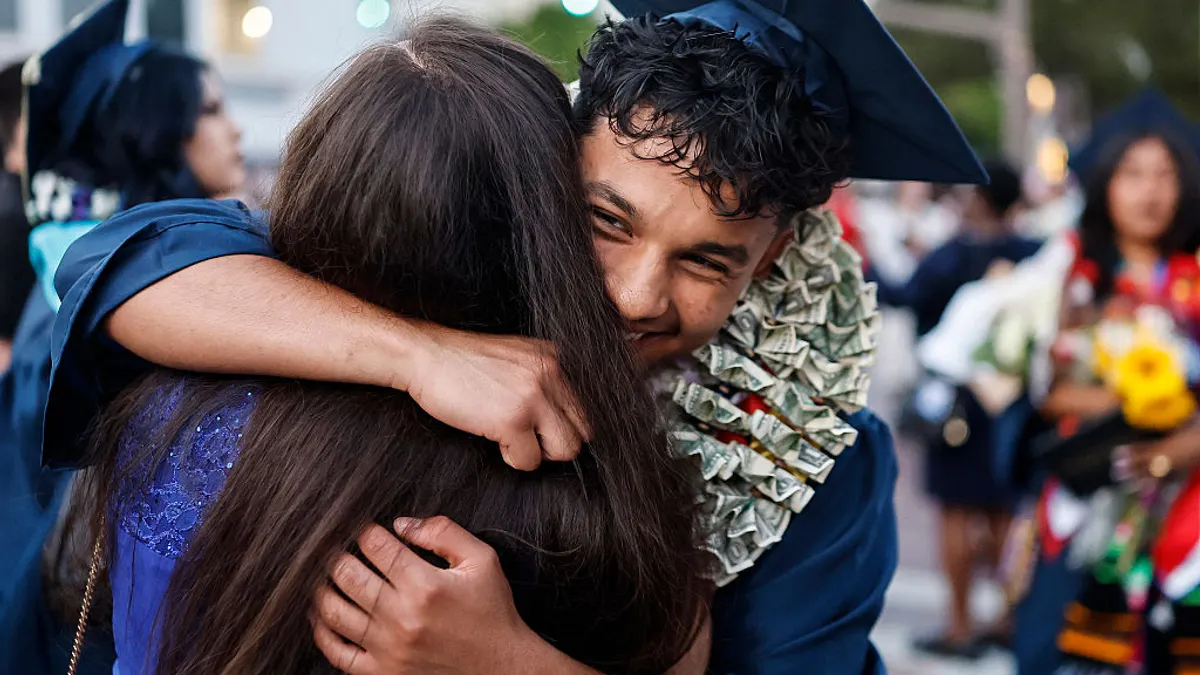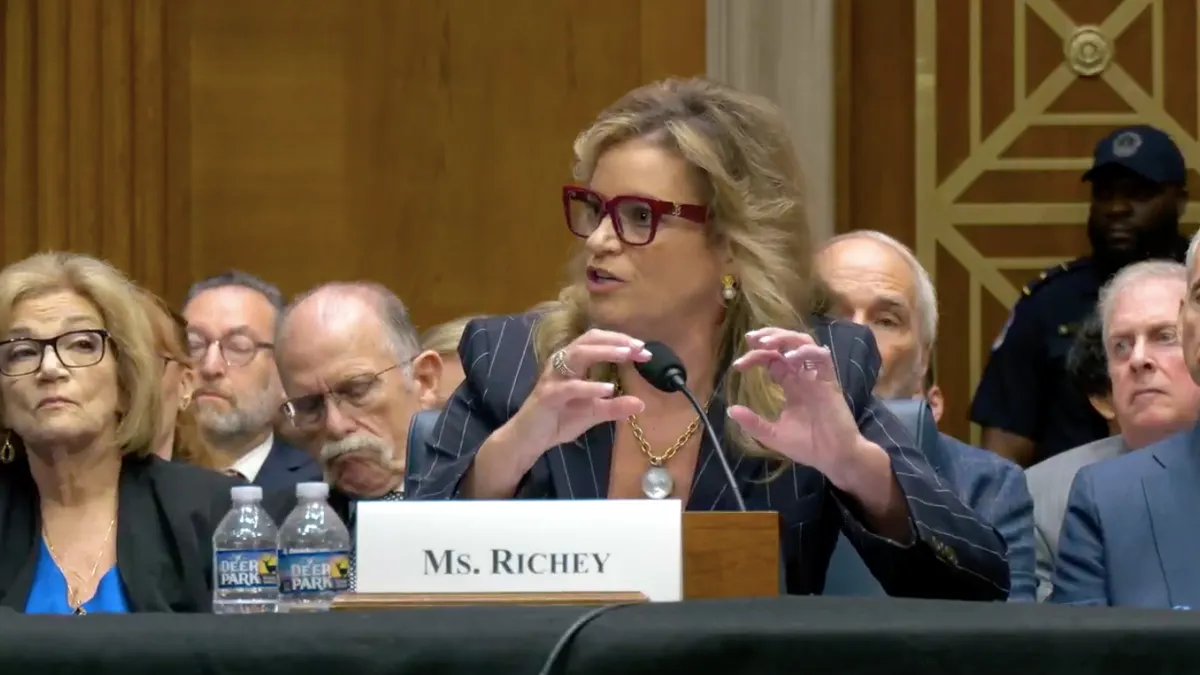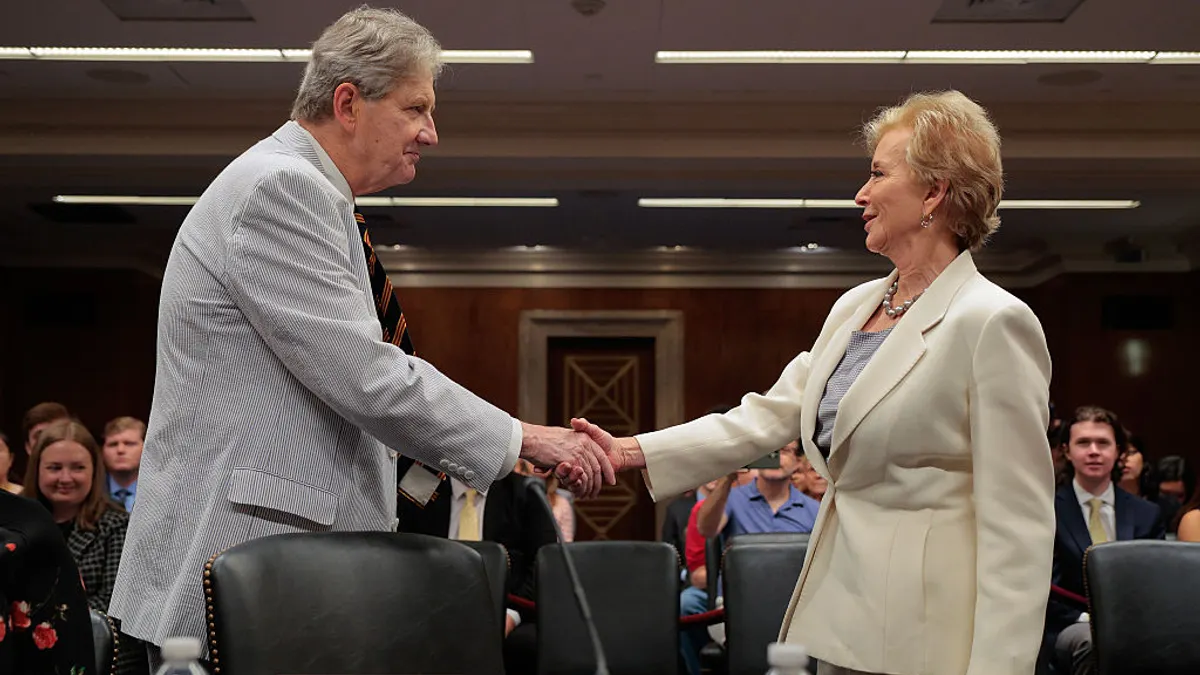Bring up middle school to most people — even educators — and you’ll likely either see them recoil or embrace those years wholeheartedly. There is rarely an in-between.
At that age range, students are going through a variety of neurological changes that can often lead to difficult behaviors and require a level of mindfulness beyond just academic support. This is something Ellis Middle School Principal Jessica Cabeen understands deeply: Her approach to leadership is driven not just by the social-emotional needs of 700 students in grades 7-8, but of staff as well.
The previous head of the Woodson Kindergarten Center, which she often refers to as the “happiest place in Southeastern Minnesota,” Cabeen previously told K-12 Dive some of her peers were particularly surprised when she decided to leave that position in 2018 for a role at the middle school.
"It was like [going from] sunshine and bubbles to vaping. People thought I was absolutely nuts," Cabeen said.
But in her transition to middle school leader, she brought that same positive outlook and a commitment to “unconventional” leadership, which she defines as challenging the status quo and being creative with your resources to find new results.
“There's great value in reading research articles and continuing professional development, but then also connecting with other leaders in the world to see what it looks like from their vantage point,” she said. “Being creative and saying, ‘OK, I think there's a match between the two of those.’”
The results haven’t gone unnoticed.
“When you see this kind of attitude each and every day from your leader, you can’t help but have it rub off on you,” said Pete Walker, an 8th-grade social studies teacher, of Cabeen’s influence on students and staff. “I have witnessed more positive and respectful interactions between staff, students and administration than I have in my 28 years of teaching, all during one of the most stressful and challenging times in our country’s history.”
Social challenges require social-emotional solutions
As anyone who has taught middle school or raised teenagers can tell you, kids this age often make decisions without thought to consequences. Both of Cabeen’s sons have been students in her school, giving her particularly unique insight to challenges today’s tweens and teens face.
“So it was really powerful to experience this not only as a principal, but as a parent, to see the different layers kids have to navigate now compared to when I went to middle school,” she said. “And just understanding that there’s so many more layers and complexity to these age groups than I had to experience” at that age.
Chief among those challenges since returning to in-person learning has been the rise of “devious licks,” a series of social media challenges originating on TikTok that task students with acts like pulling soap dispensers or urinals from bathroom walls.
“I think it also just lends itself to how vulnerable our students can be with what they see on social media, so we really took this as an opportunity to make it a teachable moment,” said Cabeen, noting there’s more to getting in front of these issues and saying “Don’t do it.” Educators must also explain to students why they’re a bad idea.
“That really is important for middle schoolers, because we want to empower and advocate for them, and they just need to know why — this is going to sound really silly — it's not safe to rip urinals out of bathrooms,” she said. “You have to actually articulate that and let them process it and repeat it back to be like, ‘Oh, yeah. That’s not a good idea.’”
At APS, we strive to maintain a welcoming and safe culture of respect and care for others and our building, but we need your help. Thanks to a recent TikTok challenge, students are destroying school property by damaging bathroom soap dispensers, urinals, and toilets. pic.twitter.com/AhAXZcozrO
— APS (@isd492) September 20, 2021
Central to Cabeen’s approach has been engaging her staff in professional development book studies and other work to better understand brain development during the middle school years, recognizing students are undergoing big growth milestones and that their behavior might not reflect where they are at cognitively due to the influence of hormones and other factors.
“She does the research. She does the studying. But more importantly than that, she looks at the results, looks at what is going on — that dynamic between family, between students, between teachers — and how she can create an environment that everyone is going to be successful,” said David Krenz, who retired in June as superintendent of Austin Public Schools in Minnesota.
Krenz said Cabeen’s communication with parents, students and staff was a particular highlight he saw in his years working with her, providing her school community with a “source of confidence that we’re not going to leave your children behind.”
Teaching while leading during a pandemic
In a definitive act of leading by example, Cabeen recognized additional support was needed when Ellis Middle School was in its hybrid learning stage of reopening and she took on the added challenge of teaching a class.
“I think at that point in time, it was important for me to experience what it was like to be a teacher through the pandemic,” said Cabeen. “I think that experience helped me lay out professional development better for our teachers, because I was actually teaching as well.”
"I really try to encourage leaders to really look at everything on their plates and decide what is really the thing that only you can do."

Jessica Cabeen
Principal, Ellis Middle School in Austin, Minnesota
The course she taught, called “academic coaching,” aimed to reduce students’ academic stress during hybrid learning while instilling social-emotional lessons. And while it may seem like a heavy lift on top of leading a school, Cabeen insists it was more about placing trust in her assistant principals to help with other tasks.
“I really try to encourage leaders to really look at everything on their plates and decide what is really the thing that only you can do,” said Cabeen. “And that's a hard thing, because principals want to be there for everybody and solve all the problems themselves and kind of be that independent, isolated contractor. But long-term, that's not sustainable, nor does that put systems in place that people can follow behind you.”
Additionally, she said authenticity is key. “I think the ways in which you can be authentic and reveal a little bit of yourself to others will really help to build that trust and build your own confidence in it,” she said.
As a case in point, she recounted how she, as a former marching band drummer, sat in on an 88-minute session with the school’s band to connect with those students.
“I think she jumped in on a lot of things,” said Carolyn Dube, an Ellis Middle School parent and former school board member. “Last year was all hands on deck everywhere, and I know that's kind of still the same way this year, but she was OK with whatever was coming her way. I always appreciate how she's good with being creative, and she is good with just taking what's coming at her and running with it. Junior high years are really bumpy for most kids, so I just appreciate that she's a constant, and it's a positive constant."



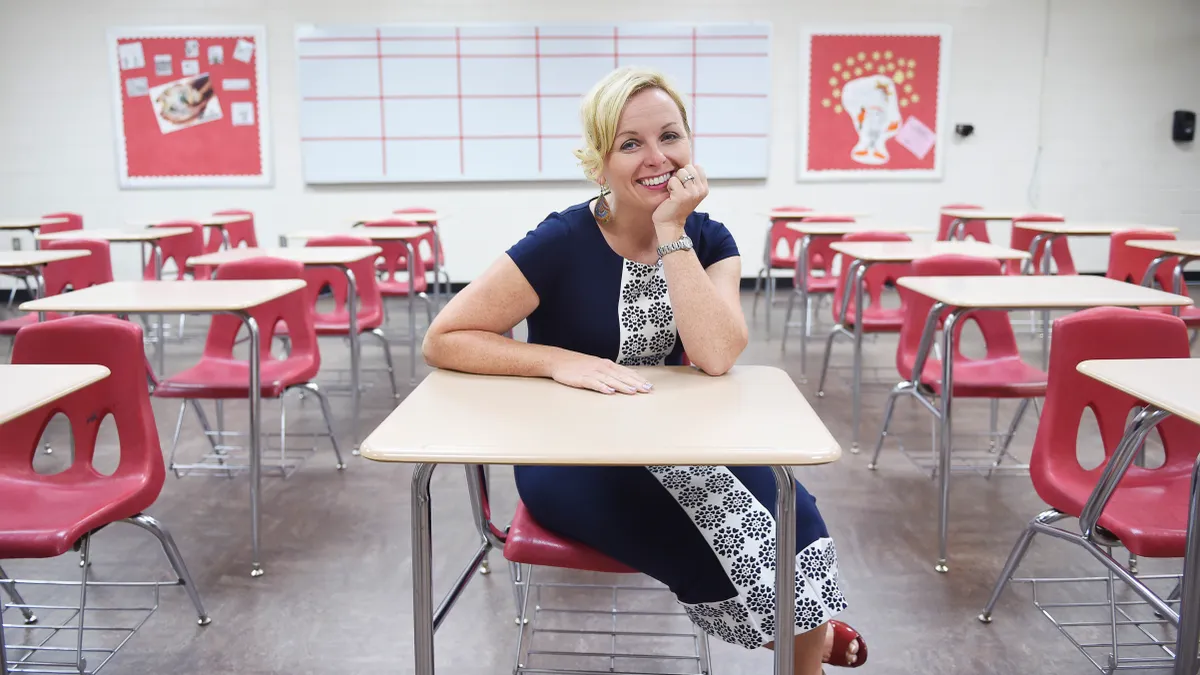



 Dive Awards
Dive Awards


